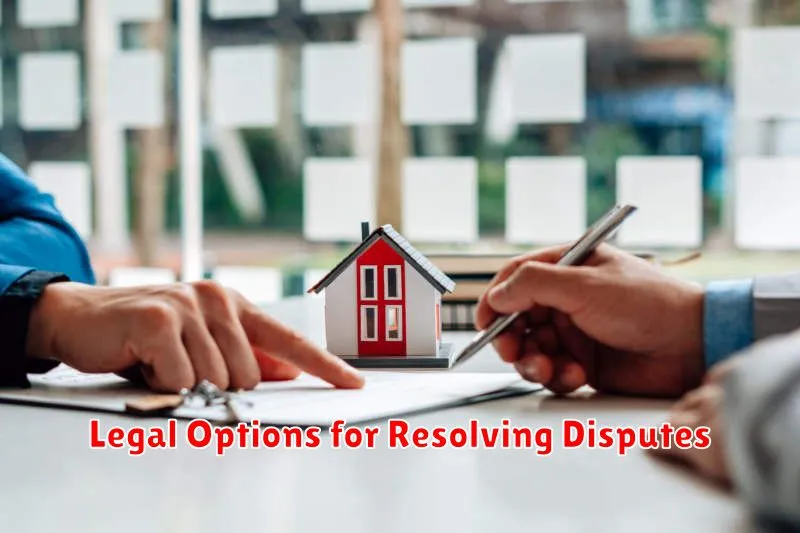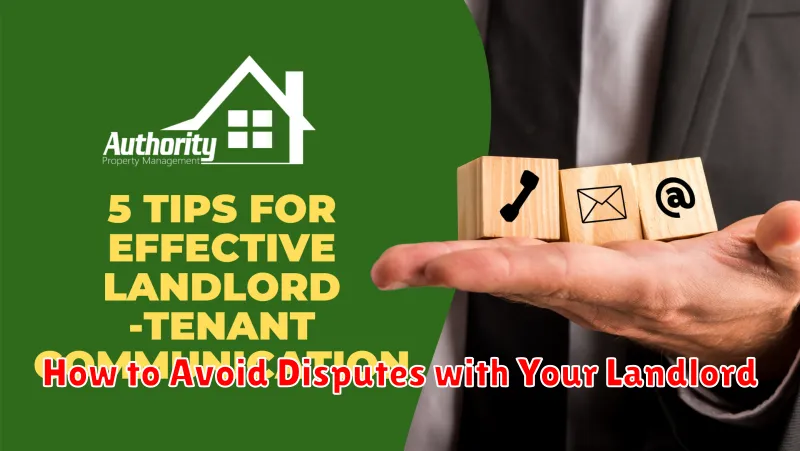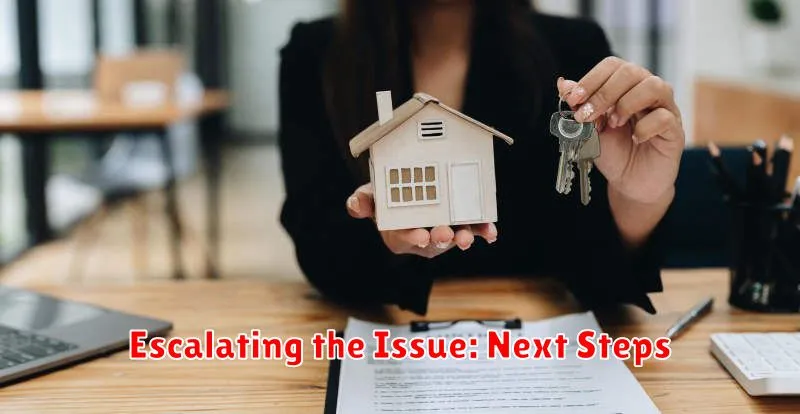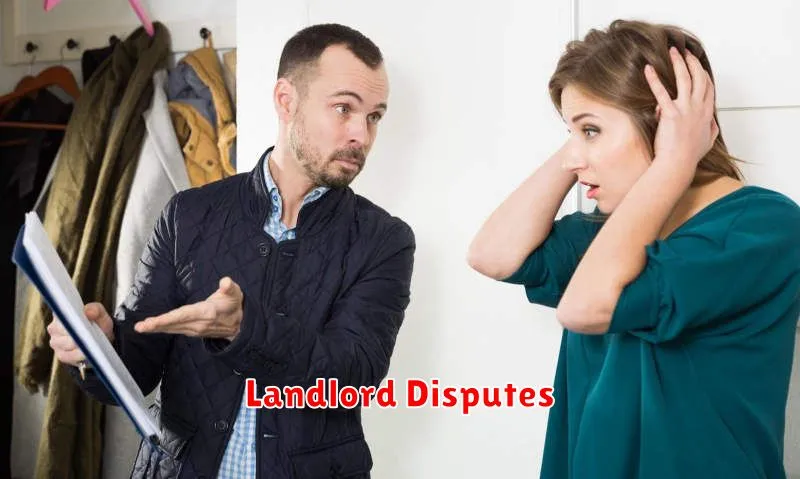Are you facing a dispute with your landlord? Dealing with rental disagreements can be stressful, but it’s important to know your rights and handle the situation effectively. This article will guide you through the process of resolving landlord-tenant disputes, from understanding your lease agreement to exploring legal options. Whether it’s a maintenance issue, security deposit refund, or rent increase, we’ll provide you with practical tips and strategies to navigate these challenging situations and reach a fair resolution.
Understanding Your Lease Agreement
Before engaging in any dispute with your landlord, it’s crucial to have a thorough understanding of your lease agreement. This document outlines the terms and conditions of your tenancy, including your rights and responsibilities as a tenant.
Carefully review your lease agreement and make note of the following:
- Rent amount and due date: This section specifies the amount of rent you are obligated to pay and the date it is due each month.
- Lease term: The lease term indicates the duration of your tenancy, often expressed in months or years.
- Landlord’s responsibilities: This section outlines the landlord’s obligations, such as maintaining the property’s habitability, providing essential services like heating and water, and responding to tenant requests for repairs.
- Tenant’s responsibilities: Your lease agreement will specify your duties as a tenant, including paying rent on time, maintaining the property in a clean and habitable condition, and abiding by the lease’s rules and regulations.
- Early termination clauses: These clauses detail the conditions under which you can break your lease early and the potential financial penalties that may apply.
- Dispute resolution procedures: The lease agreement may outline specific procedures for resolving disputes with your landlord, such as mediation or arbitration.
Understanding the contents of your lease agreement will empower you to navigate any disputes with your landlord effectively. It serves as a legal contract defining the boundaries of your tenancy and provides valuable information to support your position during any disagreements.
Communicating Effectively with Your Landlord
When dealing with a dispute with your landlord, clear and respectful communication is crucial. It can help prevent misunderstandings, find solutions, and maintain a positive relationship. Here are some key tips for effective communication:
Be Professional and Respectful: Even if you’re frustrated, address your landlord with courtesy. Use a professional tone in emails, letters, or phone calls. Avoid using accusatory language or making personal attacks.
Document Everything: Keep detailed records of all communication, including dates, times, and summaries of conversations. If possible, keep copies of any emails or letters you send and receive.
Be Specific: When describing the issue, be clear and concise. State the problem, provide details, and clearly explain your desired outcome. Avoid using vague or emotional language.
Focus on Finding Solutions: Instead of dwelling on the problem, work towards finding a mutually agreeable solution. Propose solutions and be open to hearing your landlord’s suggestions.
Use a Formal Communication Method: While texting can be convenient, for important matters, opt for emails, letters, or phone calls. This creates a record and helps ensure your communication is taken seriously.
Request a Meeting: If discussions are not productive through email or phone, consider requesting a face-to-face meeting. This allows for better understanding, clarification of issues, and potential for finding solutions.
Be Patient and Persistent: Resolving disputes can take time. Be patient, stay calm, and continue to follow up with your landlord to ensure the issue is addressed.
Documenting Everything
The most important thing to do when dealing with a landlord dispute is to document everything. This includes keeping a detailed record of all communications, both written and verbal, as well as any evidence of the problem you are experiencing. This documentation can be crucial in proving your case to your landlord, or even in court if you need to take legal action.
Here are some tips for documenting your landlord dispute:
- Keep a log of all communication. This includes emails, letters, text messages, phone calls, and even in-person conversations. Note the date, time, and content of each communication. If possible, get a copy of all written communication.
- Take photos and videos. If you are experiencing a problem in your apartment, such as a leak, mold, or infestation, take photos and videos to document the problem. This can be helpful evidence if you need to file a complaint with your landlord.
- Save all receipts. If you are making repairs to your apartment yourself, save all receipts for the materials and labor. This can help you recoup your costs if your landlord is responsible for the repair.
- Keep a copy of your lease. Make sure you have a copy of your lease agreement, as this will outline your rights and responsibilities as a tenant.
Documenting everything can be a time-consuming process, but it is essential in protecting your rights as a tenant. By keeping detailed records of all communication and evidence, you will be in a better position to resolve the dispute with your landlord.
When to Involve a Mediator
Mediation is a great way to resolve disputes with your landlord without going to court. A mediator is a neutral third party who helps both sides come to an agreement. They don’t tell you what to do, but they can help you understand each other’s perspectives and come up with solutions that work for everyone. Mediation can be a good option if you’re dealing with issues like:
- Rent increases
- Security deposits
- Repairs
- Noise complaints
- Lease violations
If you’re considering mediation, you should contact a reputable mediator. They can help you understand the process and whether it’s the right option for you. It’s important to remember that you don’t have to agree to anything during mediation, and you can walk away at any time.
Knowing Your Rights as a Tenant
Before you can effectively handle any disputes with your landlord, it is crucial to know and understand your rights as a tenant. Your rights are outlined in your lease agreement and by state and local laws. Familiarize yourself with these regulations, as they dictate what your landlord can and cannot do, and what you are entitled to as a tenant.
Some key areas to focus on include:
- Privacy: Your landlord cannot enter your unit without proper notice unless there’s an emergency or you have given your consent.
- Safety and Habitability: Your landlord is responsible for maintaining a safe and habitable living environment, including working utilities and proper repairs.
- Security Deposit: You have the right to receive your security deposit back, minus deductions for damages, within a certain timeframe after you move out.
- Rent Increases: There are usually restrictions on how much your landlord can increase rent, and they must provide proper notice before doing so.
- Eviction: Your landlord must follow legal procedures for evicting you, and they cannot evict you without a valid reason.
It’s vital to keep records of all communication with your landlord, including any repair requests or rent payments. This documentation will be crucial if you need to pursue any legal action.
Knowing your rights empowers you to communicate effectively with your landlord and resolve disputes fairly. It’s always best to try to resolve issues amicably, but if necessary, you can seek assistance from tenant organizations or legal aid services.
Legal Options for Resolving Disputes

If you’ve exhausted all other options for resolving a dispute with your landlord, you may need to consider legal action. There are a few different legal options available to you, depending on the nature of your dispute and the laws in your jurisdiction.
One option is to file a small claims lawsuit. This is a relatively simple and inexpensive way to resolve disputes involving relatively small amounts of money. However, small claims courts typically have strict limits on the amount of money that can be awarded.
Another option is to file a formal complaint with your local housing authority. This can be a good option if you believe that your landlord is violating local housing laws. The housing authority can investigate your complaint and take action against your landlord if necessary.
Finally, you can also seek legal representation from a lawyer. This is usually the best option if your dispute is complex or involves a large amount of money. A lawyer can help you navigate the legal system and fight for your rights.
Before you take any legal action, it’s important to understand your rights and the laws in your jurisdiction. You should also gather all relevant evidence to support your case.
It’s also worth noting that many local governments offer mediation services to help tenants and landlords resolve disputes without resorting to court. This can be a good option if both parties are willing to compromise.
Common Landlord-Tenant Disputes
Disputes between landlords and tenants are unfortunately common. Most issues stem from misunderstandings or disagreements over the lease agreement. Here are some of the most frequent points of contention:
Rent and Late Fees: Late rent payments are a major source of conflict. Landlords may impose late fees, and tenants may dispute their validity or amount. Other issues may arise regarding rent increases, security deposits, and utility bills.
Property Conditions and Repairs: One party may feel the other is not upholding their end of the bargain regarding property maintenance. Tenants may complain about issues like leaky roofs, broken appliances, or pest infestations, while landlords may disagree with the urgency or necessity of repairs.
Lease Violations: Lease agreements often outline specific rules regarding pet ownership, noise levels, and guest policies. Tenants may be accused of violating these rules, leading to disputes with the landlord.
Access to the Property: Landlords may need access to the property for repairs or inspections. Tenants may feel the landlord is exceeding their rights in terms of frequency or notice given before entering.
Eviction: In extreme cases, landlords may seek to evict tenants for lease violations, non-payment of rent, or other reasons. Eviction processes can be complex and stressful for both parties.
It’s important to note that state laws vary widely concerning landlord-tenant rights and responsibilities. Consulting with legal professionals is advisable if disputes arise, as they can provide guidance and legal representation.
How to Avoid Disputes with Your Landlord

Disputes with landlords can be stressful and time-consuming. Luckily, there are steps you can take to minimize the chances of conflict and maintain a positive relationship with your landlord.
Read and Understand Your Lease: The lease is a legally binding agreement between you and your landlord. Carefully read it and make sure you understand all of its terms, especially regarding rent, utilities, maintenance, and pet policies.
Communicate Effectively: Open and clear communication is essential. If you have any concerns or issues, address them with your landlord promptly in writing or through email. Keep records of all communication, including dates, times, and content.
Pay Rent on Time: Late rent payments are a common source of disputes. Set reminders and make payments promptly to avoid late fees and potential eviction.
Be a Responsible Tenant: Take care of your unit and adhere to the terms of your lease. This includes keeping the premises clean, respecting noise ordinances, and avoiding damage.
Know Your Rights: Be aware of your tenant rights and responsibilities under local and state laws. Knowing your rights can help you prevent disputes or resolve them more effectively.
Document Everything: Keep records of all repairs, maintenance requests, and communication with your landlord. This documentation can be valuable if a dispute arises.
By following these tips, you can significantly reduce the likelihood of disputes with your landlord and maintain a harmonious living environment.
Escalating the Issue: Next Steps

If your attempts to resolve the issue with your landlord directly have been unsuccessful, it’s time to escalate the matter. Here are some steps you can take:
1. Document everything: Keep a detailed record of all communication with your landlord, including dates, times, and the content of each conversation. This documentation will be crucial if you need to take further action.
2. Consider mediation: Many cities and states offer free or low-cost mediation services for landlord-tenant disputes. Mediation provides a neutral space for you and your landlord to work together to find a solution.
3. File a complaint: If mediation doesn’t work, you can file a formal complaint with your local housing authority or tenant’s rights organization. They can investigate your complaint and potentially take action against your landlord.
4. Seek legal advice: If the issue is serious or you’re facing legal action from your landlord, it’s best to seek legal advice from a qualified attorney. They can advise you on your rights and help you navigate the legal process.
Remember, resolving disputes with your landlord can be challenging, but by taking the right steps, you can protect your rights and ensure a safe and comfortable living environment.

